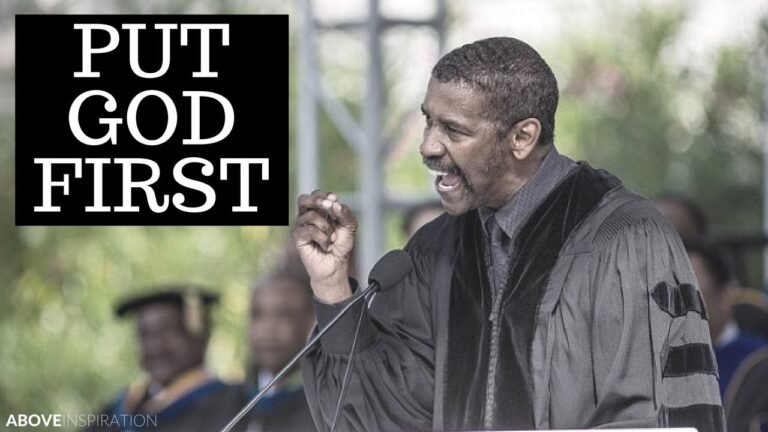Abraham: The Foundational Figure of the Bible
Abraham, a pivotal figure in the Bible, stands as a symbol of faith and obedience that resonates across generations. Revered as the patriarch of Judaism, Christianity, and Islam, his journey from Ur of the Chaldeans to the Promised Land illustrates a profound relationship with God marked by trials, covenants, and divine promises. This article delves into the life of Abraham, exploring his significance in biblical narratives and the enduring impact of his legacy on religious traditions worldwide.
What events occurred involving Abraham in the Bible?
Abraham, a pivotal figure in the Bible, experienced profound life events, including the marriage of his son Isaac to Rebekah. This union not only solidified the lineage of the Israelites but also led to the birth of twin grandsons, Jacob and Esau, who would become significant figures in their own right. These milestones marked the culmination of Abraham’s legacy, intertwining his family with the future of nations.
At the age of 175, Abraham’s life came to a close. He was laid to rest in the cave of Machpelah, a burial site chosen by his sons, Isaac and Ishmael. This final resting place symbolizes the enduring impact of his faith and the continuation of his lineage, ensuring that his story and the promises made to him would resonate through generations.
What was Abraham’s calling in the Bible?
Abraham’s journey began with a divine call that would change the course of history. God instructed him to leave behind the familiarity of his homeland, urging him to venture into the unknown. This pivotal moment marked the beginning of a profound transformation, not only for Abraham but for his descendants and the world at large.
As Abraham obeyed and stepped into this new territory, he was promised greatness. God declared that he would become the father of a great nation, a legacy that would extend far beyond his immediate family. This promise of nationhood was intertwined with faith and obedience, setting a precedent for generations to come.
Abraham’s unwavering trust in God’s guidance exemplifies the essence of faith. His willingness to leave behind his comforts for the promise of a better future showcases the profound impact of divine calling. Through his journey, Abraham not only established a nation but also laid the foundation for a spiritual lineage that continues to inspire millions today.
What does the Bible say about Abraham in relation to God?
In the Bible, God made a significant declaration to Abraham when he was ninety-nine years old. The Almighty God introduced Himself with a command to Abram, instructing him to walk before Him and to be perfect. This divine directive highlights the importance of faithfulness and integrity in the relationship between God and His followers.
Moreover, God established a profound covenant with Abraham during this encounter. He promised not only to be a guiding force in Abraham’s life but also to multiply his descendants exceedingly. This promise signifies a monumental blessing, setting the stage for the unfolding of a great lineage that would have lasting implications in biblical history.
Abraham’s response to God’s call exemplifies obedience and trust, qualities that resonate throughout his journey. The covenant stands as a testament to God’s faithfulness and the profound impact of His promises on humanity. Through this relationship, Abraham becomes a central figure in the narrative of faith, embodying the ideals of devotion and commitment to God’s will.
Exploring the Legacy of Faith and Covenant
The legacy of faith and covenant is woven deeply into the fabric of human history, transcending cultures and eras. At its core, the concept embodies a profound relationship between the divine and humanity, marked by promises and commitments that shape moral and ethical frameworks. This sacred bond has inspired countless individuals and communities to seek purpose, find strength in adversity, and cultivate a sense of belonging through shared beliefs.
Throughout history, various religions and philosophies have articulated their own interpretations of faith and covenant, each adding layers of meaning to this timeless theme. From the Biblical covenants that defined the ancient Israelites’ journey to the transformative teachings of spiritual leaders across different traditions, the narratives of faith serve as guiding lights. They encourage adherents to uphold values of justice, compassion, and stewardship, fostering a collective responsibility towards one another and the world.
As we navigate the complexities of contemporary life, the legacy of faith and covenant remains a vital source of inspiration and resilience. It invites us to reflect on our commitments to one another and to the ideals we hold dear. In a rapidly changing world, understanding this legacy not only deepens our appreciation for our own beliefs but also encourages dialogue and connection across diverse communities, reminding us that we are all part of a larger story.
Abraham’s Journey: A Path to Promise
Abraham’s journey began in the land of Ur, where he received a divine call to leave his familiar surroundings and embark on an unknown path. This pivotal moment marked the start of a lifelong adventure filled with challenges and revelations. Guided by unwavering faith, Abraham traversed vast landscapes, forming a deep connection with the promise of a great nation that would emerge from his lineage. Each step taken was a testament to his belief in a future that transcended his immediate reality, as he sought a land flowing with possibilities.
As he navigated through trials and tribulations, Abraham’s resilience became a beacon of hope for those who followed in his footsteps. His encounters with kings, strangers, and his own family served to strengthen his commitment to the covenant made with God. Through these experiences, he learned the importance of trust, patience, and the power of divine promises. Abraham’s story is not just about the destination but the transformative journey of faith that inspires generations to dare to dream and pursue their own paths to promise.
The Patriarch Who Shaped Religions
Throughout history, few figures have had as profound an impact on religion as the patriarchs of ancient traditions. These foundational leaders, often depicted as wise and visionary, established the core beliefs and practices that continue to influence millions today. Their teachings, rooted in moral integrity and spiritual insight, have transcended time, shaping the ethical frameworks of diverse cultures. As the bedrock of various faiths, they provided a sense of identity and community, guiding followers through the complexities of existence and the search for meaning.
The legacy of these patriarchs is not merely historical; it resonates in contemporary spiritual discourse. They laid the groundwork for theological debates, interfaith dialogues, and the exploration of universal truths. By fostering a sense of shared heritage, these figures invite modern believers to reflect on their roots while encouraging a dialogue that bridges past and present. As we navigate our increasingly interconnected world, the teachings of these patriarchs remind us of the enduring power of faith to unify and inspire, offering a guiding light for future generations.
Lessons from Abraham: Trust and Obedience
Abraham’s journey is a powerful testament to the strength of trust and obedience in the face of uncertainty. When called to leave his homeland, he embraced the unknown, demonstrating unwavering faith in a promise greater than himself. This profound trust in a higher purpose not only shaped his destiny but also paved the way for generations to come. Abraham’s willingness to step into the unknown serves as a reminder that true growth often occurs outside our comfort zones, urging us to embrace change with courage.
Moreover, Abraham’s obedience to divine guidance showcases the importance of aligning our actions with our beliefs. Even when faced with difficult choices, he remained steadfast, illustrating that genuine faith is not merely about belief but also about action. His willingness to sacrifice what he held dear underscores the transformative power of obedience, encouraging us to reflect on our values and commitments. Through Abraham’s example, we learn that trust and obedience can lead to profound personal and communal growth, inspiring us to navigate our own journeys with purpose and resolve.
Abraham’s profound journey in the Bible not only establishes him as a pivotal figure in faith traditions but also offers timeless lessons on trust, obedience, and resilience. His life story resonates across generations, inspiring countless individuals to embrace the courage to follow their convictions. As we reflect on Abraham’s legacy, we are reminded of the power of faith to shape our destinies and the importance of forging a deeper connection with our beliefs.







